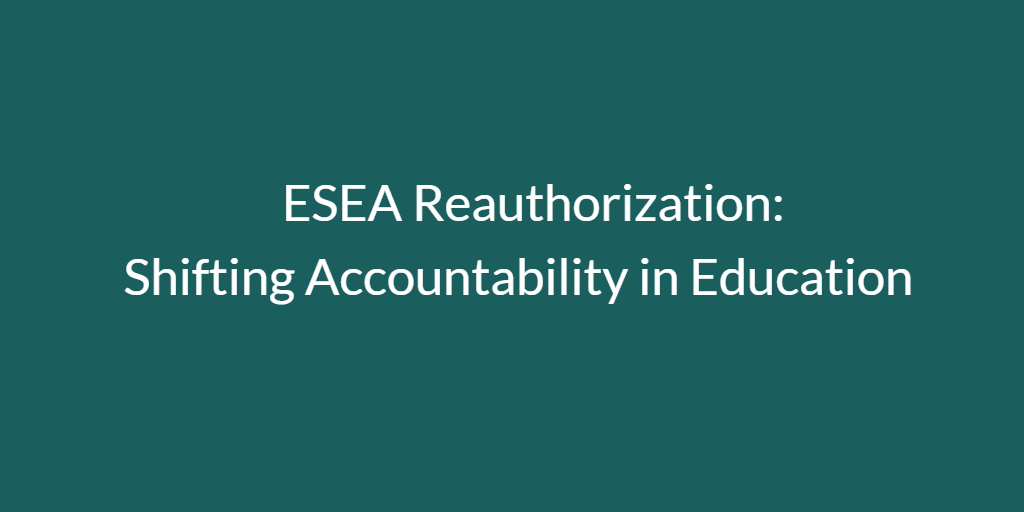Changes in Education Laws Leave Teachers with More Responsibility
Thanks to a new version of the Elementary and Secondary Education Act (ESEA), the beleaguered issue of school accountability is experiencing a shift away from heavy federal involvement and toward the individual state, district, and even school level management. This edweek.org article by Alyson Klein touches on a few ways “states and districts seek to step up.”
The Background
After the ESEA Reauthorization (the reincarnation of its predecessor, the No Child Left Behind Act), states are now required to hold schools accountable for not only test scores, but also less clear-cut metrics, such as school quality. Some examples of ambiguous new elements being evaluated are “performance assessments” which are beginning to replace standardized testing in New Hampshire; and certain school districts in California are evaluating students on more than just math and English skills – social-emotional skills are being considered as well.
The Role of Common Core
Klein also sheds light on the role of the Common Core in this unexpected turnaround: due to the pervasive unpopularity of NCLB, Common Core standards became the widespread adaptation of rigorous performance metrics and the measuring stick for future readiness. However, thanks to the backlash against standardized testing, the Common Core, and the federal role in accountability, the onus now falls on individual states and trickles all the way down to teachers to uphold a commitment to a certain standard of student academic performance. Consequences at every level, some serious, have been designed to enforce policy changes in schools deemed unsatisfactory.
Teachers Taking Initiative
With the attitude adjustment comes an urge for many educators to take matters into their own hands, focusing on professional development now more than ever. Thousands of Pennsylvania teachers have turned to Eduspire — an innovative provider of graduate-level professional development courses which focus on K-12 integration of current technology tools and concepts — to get ahead of the curve and step up (or “tech up”) — their classroom instruction.
Finding the Right Fit
Whether subject-specific or cross-disciplinary, there’s a course for everyone. In light of these recent shifts, why not be ready for changes to be implemented in your district? Here are some courses to help prepare you for the climate change after ESEA Reauthorization and to take matters into your own hands:
Using Technology to Promote Creativity & Innovation
Google Tools for Educators
Creating Effective Video for the Classroom
Game-Based Learning
Multimedia in the Classroom
…and dozens more. Contact us with questions anytime, and don’t forget to check out our news page from time to time to keep up with announcements, events, and ed-tech community updates!

